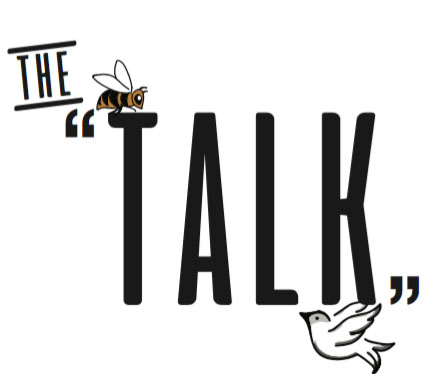The Way We See It Issue 5: The “Talk”

March 10, 2017
Lurking in each and everyone of our homes is an elusive monster. Elusive, yet one that remains in everyone’s mind. One could say “He-who-must-not-be-named.”
Sex–yes, sex–makes people very uncomfortable. While it is an essential part of life, considering life wouldn’t exist without sex, we are raised to keep the topic hidden behind closed doors (or should we say under the covers.)
Despite this we still need to be educated on the topic and how to keep it safe; hence the need for sex ed in schools. Most schools in the United States require their students to take some sort of health class, and sexual education is often a unit within these classes. Sadly, many school systems don’t provide their students with the proper information necessary to be educated about their sexual activity.
Some states, like Indiana, have laws in place requiring that sex ed be abstinence based.
Noblesville Schools, due to these state laws, focus on an abstinence based sex ed. Even though abstinence is the best form of birth control, students should know the different form of contraceptives, such as condoms, pills and IUDs. But with little to no knowledge of these safety measures, students are putting themselves at risk of teen pregnancy, STDs and HIV/AIDS.
According to the Center for Disease Control, more than 249,000 babies were born to teenage mothers in the United States in 2014. Additionally, the CDC says that 60 percent of sexually active teens contract an STD and 25 percent of teens have an STD. Also, according to the Guttmacher Institute, “On average, young people in the United States have sex for the first time at about age 17.” This raises the question: if teens are taught to remain abstinent, then why are they having sex?
Teenagers are going to have sex no matter what. Why? Human nature. Everyone is pre-hardwired to find a mate. Yet, we are told to suppress those urges, and while that may be a good thing (considering in some cases expressing urges may result in sexual assault), we also deserve to know how our bodies work. The lack of a basic understanding of how our physiology operates in regard to sex can be blamed for contributing to this problem.
The Mill Stream believes that sex education should be safe and human biology based because that approach will teach students proper safe sex concepts as well as help students understand the science. While students have the right to know what abstinence is and what it means, schools and Indiana lawmakers need to understand science, acknowledge reality, and act accordingly to the fact that students will sometimes engage in unsafe behaviors.
The fact of the matter is that some teenagers are going to have sex. The real problem is that without the proper education or tools, students are going to have unsafe sex. We demand a proper sexual education. One that will prevent that unsafe behavior. One in which a detailed explanation of safety and STD prevention helps lower the teenage pregnancy rate. Let’s understand that even though something can be so private, and intimate, the matter at hand needs to be discussed. Conversations and education about sex should not be kept behind closed doors—or between the sheets—but within the pages of our textbooks.



